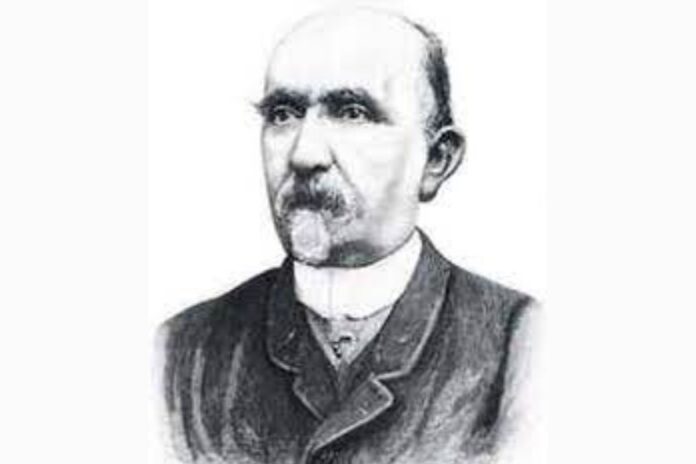Carlo Lorenzini (November 24, 1826 – October 26, 1890), better known by his pen name Carlo Collodi, was an Italian author, humorist, and journalist. He is best known for his beloved fairy tale novel The Adventures of Pinocchio, which has captivated readers worldwide and remains a classic in children’s literature.
Carlo Collodi: The Italian Mastermind Behind Pinocchio and His Legacy
When we think of Carlo Collodi, we instantly recall Pinocchio, the wooden puppet whose nose grew each time he told a lie. But there’s much more to Collodi’s story than his famous creation. This article delves into the life and legacy of Carlo Collodi, exploring how he shaped Italian literature, captured readers’ imaginations, and left an indelible mark on children’s storytelling worldwide.
Who Was Carlo Collodi?
Early Life and Background
Carlo Lorenzini, better known by his pen name, Carlo Collodi, was born on November 24, 1826, in Florence, Italy. The eldest of ten children, he grew up in a modest family where his parents worked as a cook and a servant. His early experiences and the political climate of Italy during his youth would significantly shape his worldview and later, his writing.
Political Involvement and Journalism
Before becoming an author of children’s tales, Collodi was deeply involved in Italy’s fight for unification. As a young man, he contributed to pro-unification newspapers, using his voice to advocate for change. His career as a journalist sharpened his writing style, making it both accessible and engaging—a skill that would serve him well in writing stories for children.
The Birth of Pinocchio
Why Pinocchio Was Written
Originally serialized in 1881 in the Giornale per i Bambini, Le avventure di Pinocchio (The Adventures of Pinocchio) began as a short story. Its popularity, however, quickly led Collodi to expand it into a full novel. Unlike traditional didactic tales of the era, Pinocchio was rich in humor, adventure, and moral lessons delivered through captivating storytelling.
Themes and Symbolism in Pinocchio
While Pinocchio appears to be a simple tale of a mischievous puppet, it’s loaded with deep themes. The story addresses the importance of honesty, the challenges of personal growth, and the consequences of one’s actions. Many see Pinocchio as a social critique, reflecting Collodi’s views on education, family values, and the moral challenges of Italian society.
Carlo Collodi’s Legacy in Children’s Literature
Influence on Italian Literature
Pinocchio broke new ground in Italy, where children’s literature was sparse at the time. Collodi’s conversational tone, relatable characters, and moral undertones resonated with young readers and introduced Italy to the potential of children’s literature. He inspired generations of Italian writers, turning children’s stories into respected literary works.
International Impact
Since its initial publication, Pinocchio has been translated into over 300 languages, making it one of the most translated books worldwide. Walt Disney’s 1940 animated film adaptation brought Collodi’s story to a global audience, solidifying Pinocchio as an iconic figure in popular culture. Collodi’s story continues to inspire adaptations across various media, including theater, film, and music.
Key Takeaways from Collodi’s Writing Style
- Conversational Tone: Collodi’s writing is direct and engaging, making complex themes accessible to young readers.
- Moral Complexity: He embraced the reality that people—and characters—make mistakes, which made Pinocchio relatable and timeless.
- Humor with Purpose: The humor in Pinocchio helped deliver moral lessons in a way that was memorable and enjoyable.
FAQs About Carlo Collodi and Pinocchio
What inspired Carlo Collodi to write Pinocchio?
Collodi wanted to create a story that both entertained and educated children, reflecting his belief that stories should teach values in an engaging way.
How did Pinocchio become so famous globally?
Its relatable themes and Disney’s animated film adaptation played key roles in Pinocchio’s international popularity. Today, it’s one of the most translated and adapted stories worldwide.
Did Carlo Collodi write other books?
Yes, before Pinocchio, Collodi wrote several books, including satirical works and moral tales for children, although none reached the iconic status of Pinocchio.
What is the central message of Pinocchio?
The main message centers on the importance of honesty, responsibility, and personal growth—lessons still relevant in modern society.
How did Collodi’s background influence Pinocchio?
Collodi’s early life in a working-class family and his involvement in Italy’s unification influenced his themes, focusing on moral choices and the complexities of human nature.
Wrapping Up: Carlo Collodi’s Timeless Influence
Additionally, Carlo Collodi’s legacy lives on through the character of Pinocchio—a mischievous puppet who taught the world about honesty, growth, and the importance of integrity. Moreover, Collodi didn’t just create a story; he built a cultural symbol that resonates across generations. Furthermore, Pinocchio’s themes of self-improvement and morality are as relevant today as they were over a century ago, cementing Collodi’s place in literary history.
Explore The Adventures of Pinocchio, and you’ll find not only a story about a wooden puppet but also a glimpse into the values that Carlo Collodi believed could shape young minds and the future of storytelling.




